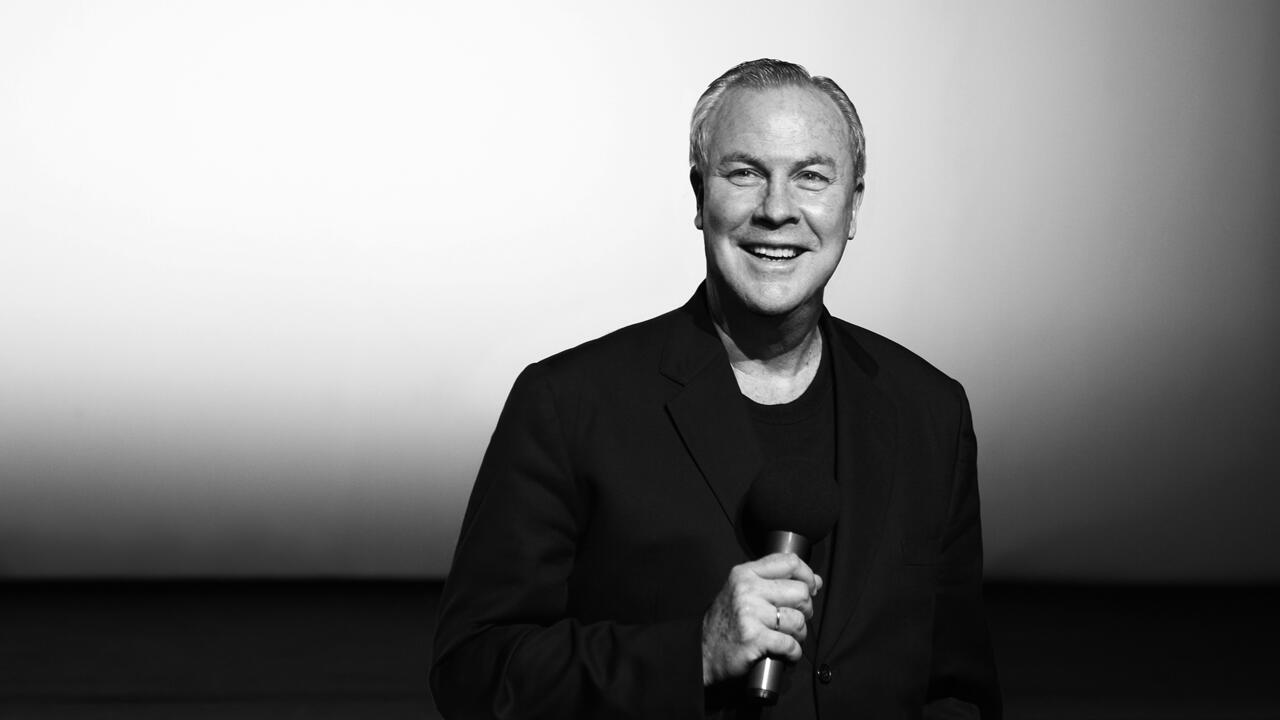Friends and Foes
Jan Verwoert writes about the 1990s, ‘New Innocence’, popular TV shows and the ethics of profanity
Jan Verwoert writes about the 1990s, ‘New Innocence’, popular TV shows and the ethics of profanity
Recently a friend explained to me that ‘Nancy’ is short for ‘Annunziata’ and that ‘xox’ means hugs and kisses. Honestly, I had no idea. I had assumed that the latter meant that one was either overwhelmed by emotion and at a loss for words, or suggesting a game of tic-tac-toe. In any case, what difference does it make?
These days I find it hard to understand what anything means. What has changed? Fearing it’s just me, I like to pretend it’s the world. My theory is that the 1990s are to blame – it was the decade of ‘New Innocence’ (at least for people living in what was formerly known as the ‘Western world’). With the Cold War over, it felt as if Armageddon had been dodged. What was there left to fear? True, the gradual erosion of traditional labour structures in the neo-liberal economy meant the bulwarks of social security began to crumble. But as the distinctions between east and west, left and right, right and wrong all faded, concepts of what constituted the good life became equally flexible – making existential choices was so yesterday. You now had options, all equally valid: to get a job or to slack off; read i-D and just be; launch a start-up or to gamble on the stockmarket. If you lost, there was no need to cry; there was always an episode of Friends on television to console you.
If anything captures the spirit of ‘New Innocence’ it is surely Friends: six young New Yorkers living in their own world, their lives not going anywhere in particular. They try, they mess up, but there are no consequences; no lasting damage is ever done and no one gets seriously hurt, so, miraculously, their innocence is never lost. At the end of the 1990s, Sex and the City took over from Friends. Its ethics are the same, only the clothes are better and there’s more money on view. How the characters make that much remains a mystery. But the first decade of the 21st century continued to be like that, didn’t it, built on a fantasy economy? It crashed. Now what?
Don’t get me wrong; I love both shows. Nothing is better at alleviating hotel-room loneliness than discovering a re-run of Friends or Sex and the City on a local channel. There’ll always be one, regardless of the country that you may have found yourself working in. It’s instant emotional rescue. So, as long as they still play the shows, we can continue as if nothing happened, can’t we? New Innocence will bail us out. We stop smoking, eat more organic food, keep improving our options and, among friends, casually admit to our vices (as if charming conceits weren’t still conceits) and no damage ever gets done that an artful dodger couldn’t easily ignore.
I’m sick of all this faux ease. But I can’t stand reading Alain Badiou either. Arguably, he’s the philosophical voice of contemporary moral discontent, breaking the comfort zone of ‘New Innocence’ by insisting that consequences have to be drawn from situations that ethically matter. Badiou calls it being ‘faithful to an event’. He has a point. Still, I have a hard time with his moral zeal. Think about it – a Frenchman preaching fidelity! Giggle. Back when it was all chain smokers in turtlenecks, it was easier to spot the Lothario, but fashions change. Nonetheless, it’s comforting to know that great minds still care. Meanwhile, what can we do? My parents raised me on the Prussian principle that ethics are the form you give to your life – firmly, strictly and simply, it’s your style. This is Kantian; however, the attempt to discuss this notion in English will only prompt more giggles the instant you mention Kant (the a pronounced like blunt). He’s a vicious one, too! Like Rimbaud! (No, not Rambo.)
On that note, I think there is an ethics to profanity. In his 2007 essay, ‘In Praise of Profanation’, Giorgio Agamben describes how, in antiquity, ritual sacrifice would entail a portion of the sacrificial gift to the gods (e.g. parts of an animal) being returned to the community as a profane share (e.g. free food) to be enjoyed by all, as an earthly thing which retained a trace of the divine. (It’s like true irreverence, which always has love at the heart of it.) So value resides neither in the divine nor the profane but is manifested in the dynamic relation between the two. Capitalist society, Agamben argues, nullifies this dynamic. When there is a price on everything, all is similarly worthy and worthless. The challenge is to revive the free interplay between profanation and veneration through anarchic practices that affect the motion and emotion of meaningful differences coming into being.
This brings us back to Annunziata. In their song ‘Rocky Racoon’, The Beatles tell the story of mountain boy Rocky’s love for the saloon girl of his fancy: ‘Her name was Magill and she called herself Lil / But everyone knew her as Nancy.’ Rocky sussed the secret of the ever-changing names: it was the movement between her divine and profane guises that made Nancy so loveable. Value lies in the motion of creating differences that matter. There you go. *#?!%✺@$✶!*✘
























